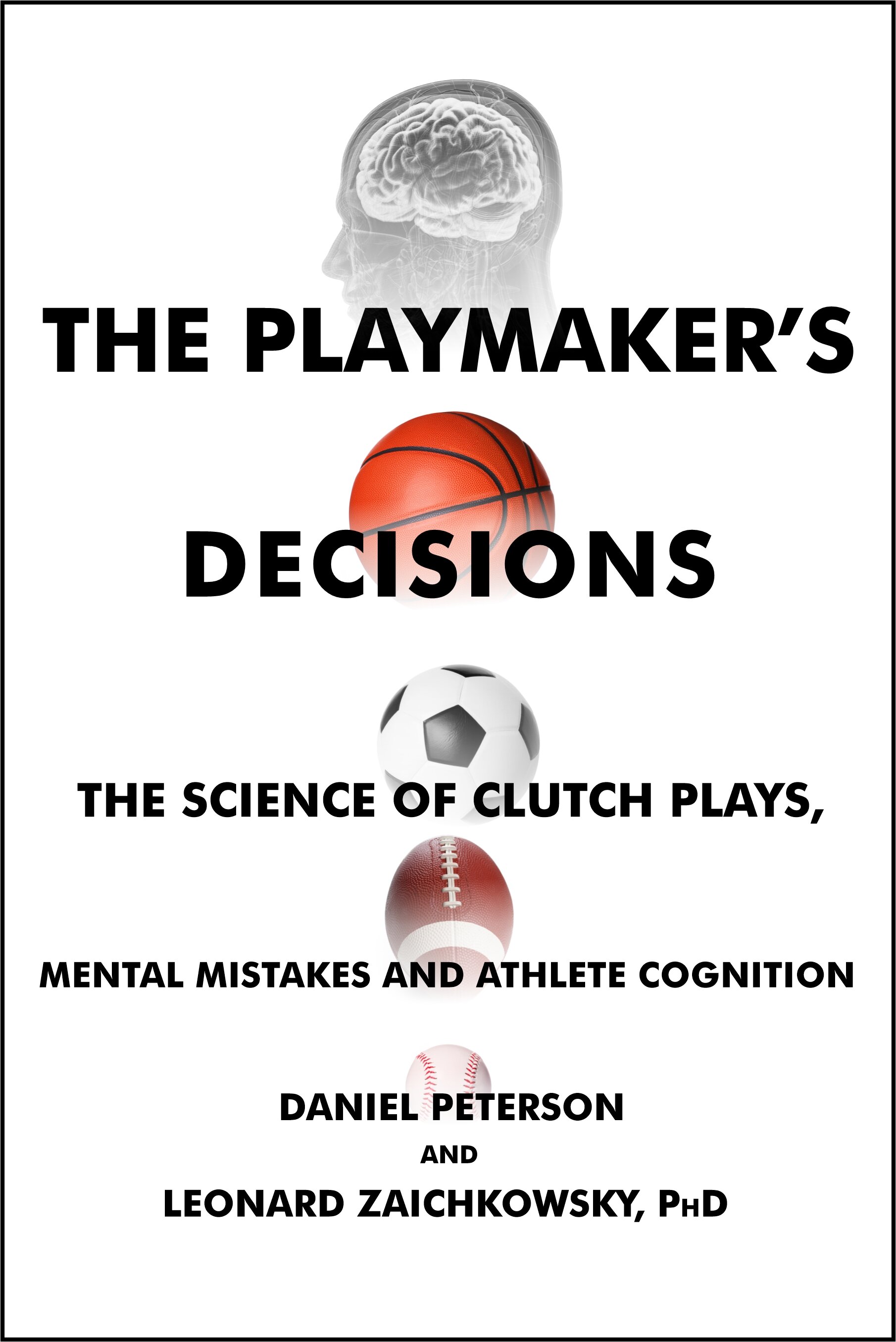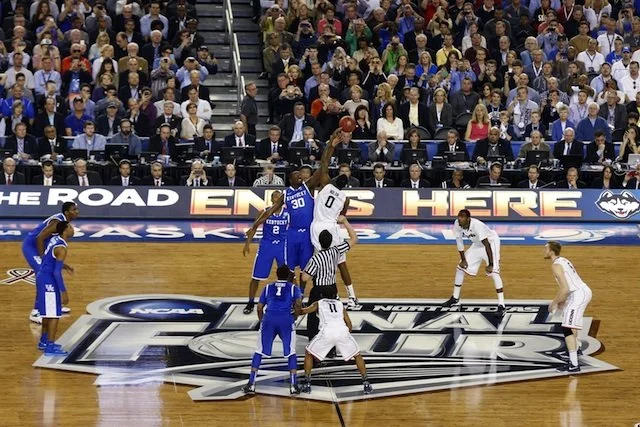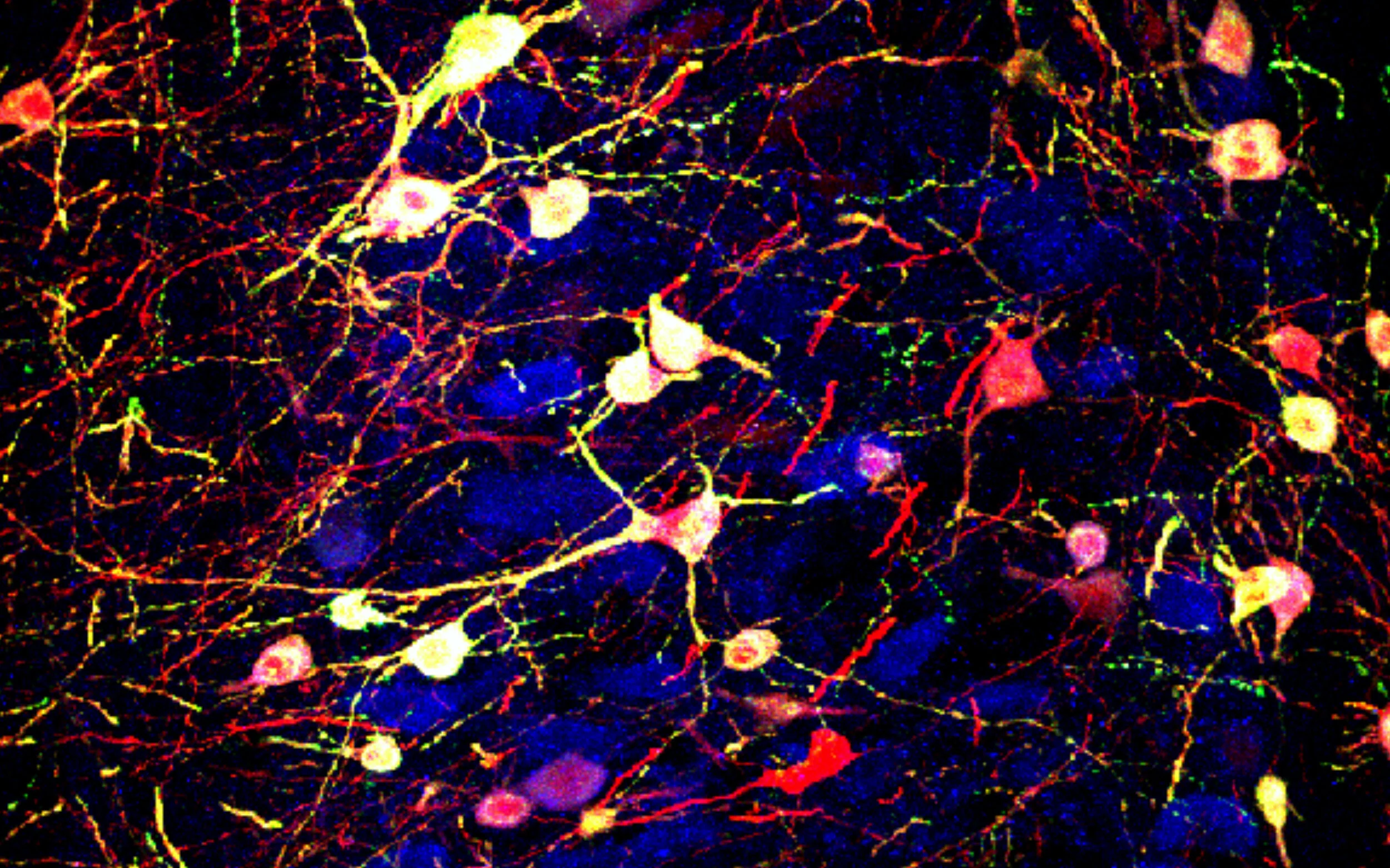Sports Fans Love A Close Game
/
For sports fans watching their favorite team play, the greatest enjoyment comes only with a strong dollop of fear and maybe even near-despair, a new study suggests. Researchers studied fans of two college football teams as they watched the teams' annual rivalry game on television. They found that fans of the winning team who, at some point during the game, were almost certain their team would lose, ended up thinking the game was the most thrilling and suspenseful.
"You don't want to be in a great mood during the whole game if you really want to enjoy it," said Silvia Knobloch-Westerwick, co-author of the study and associate professor of communication at Ohio State University. "We found that negative emotions play a key role in how much we enjoy sports."
The study appeared in a recent issue of the Journal of Communication.
Researchers studied 113 college students as they watched the 2006 football game between the Ohio State University Buckeyes and the University of Michigan Wolverines. While the game has always been a bitter rivalry, the stakes were particularly high that year: Ohio State was ranked number one in the country and Michigan was ranked number two, with the winner going to the national championship game.
Ohio State ended up winning the game 42-39, in a dramatic finish.
"Ohio State was winning easily in the first half, but the good thing for our study was that Michigan really tightened the game in the second half. It turned out to be a great game," said Prabu David, study co-author and associate professor of communication at Ohio State.
Students from Ohio State, the University of Michigan, and Michigan State University participated in the study. Before the game, they completed questionnaires about which team they were rooting for, and how committed they were to their favorite team.
They then watched the game on television from wherever they wanted, and logged onto a website during the 24 commercial breaks to answer questions about the likelihood that their favorite team would win, how suspenseful they thought the game was, and how positively or negatively they were feeling at the moment.
The results showed how important negative emotions were to enjoyment of the game.
"When people think about entertainment in general, they think it has to be fun and pleasurable. But enjoyment doesn't always mean positive emotions," David said. "Sometimes enjoyment is derived by having the negative emotion, and then juxtaposing that with the positive emotion."
Results showed that positive feelings during the game had the greatest effect on suspense, but negative feelings also played a substantial role. In the past, researchers have thought of positive and negative emotions experienced in entertainment as cancelling each other out, David said. But this research suggests that both positive and negative emotions act independently and together to contribute to entertainment and enjoyment.
"You need the negative emotions of thinking your team might lose to get you in an excited, nervous state," Knobloch-Westerwick said. "If your team wins, all that negative tension is suddenly converted to positive energy, which will put you in a euphoric state."
That's why the fans of the winning team -- in this case, Ohio State -- who felt the most sense of enjoyable suspense were also those who at some point were most convinced their team would lose, she said. As expected, the study found that participants who said they were fans of one of the teams also found the game more suspenseful than those who had no strong allegiance.
However, the intensity of fan commitment did not matter in terms of how much suspense viewers felt during the game. In other words, viewers who considered themselves "super fans" because of how committed they were to their team and how long they supported their team, did not find the game any more suspenseful than did less committed fans of the team.
There was no difference between Ohio State and Michigan supporters in terms of how suspenseful they thought the game was, which was expected given the closeness of the game. David said the results of this study closely followed those of a previous study he did with colleagues that examined fan reaction during the 2006 Super Bowl between the Pittsburgh Steelers and Seattle Seahawks.
The results of that study also showed the importance of negative feelings in contributing to how much fans enjoyed the game.
"Obviously, winning helps people enjoy a game. But we're finding that it doesn't help to have a game where you have positive feelings the whole game -- negative feelings are an important part of enjoying a game," he said.
While some people may question the purpose of studying fan reactions to a football game, the researchers say the study has important implications. For one, sports provides a unique opportunity to study how emotions operate in people.
"Researchers want to study the impact of emotions, but it is very difficult to create powerful emotional reactions in a laboratory setting," David said. "This is a study that was done in the real world, and we can get a snapshot into a person's emotional state while they are actually experiencing the emotion. Sports creates emotions that are very powerful, and which matter to people."
In addition, regardless of what people think about it, sports and entertainment is a big business in America and around the world.
"We need to better understand how people use entertainment in their lives, and what value they are getting from it," Knobloch-Westerwick said. "This study is just one step in that process."
See also: Sports Fans Have Selective Memories and The Cognitive Benefits Of Being A Sports Fan
Source: Ohio State University
"You don't want to be in a great mood during the whole game if you really want to enjoy it," said Silvia Knobloch-Westerwick, co-author of the study and associate professor of communication at Ohio State University. "We found that negative emotions play a key role in how much we enjoy sports."
The study appeared in a recent issue of the Journal of Communication.
Researchers studied 113 college students as they watched the 2006 football game between the Ohio State University Buckeyes and the University of Michigan Wolverines. While the game has always been a bitter rivalry, the stakes were particularly high that year: Ohio State was ranked number one in the country and Michigan was ranked number two, with the winner going to the national championship game.
Ohio State ended up winning the game 42-39, in a dramatic finish.
"Ohio State was winning easily in the first half, but the good thing for our study was that Michigan really tightened the game in the second half. It turned out to be a great game," said Prabu David, study co-author and associate professor of communication at Ohio State.
Students from Ohio State, the University of Michigan, and Michigan State University participated in the study. Before the game, they completed questionnaires about which team they were rooting for, and how committed they were to their favorite team.
They then watched the game on television from wherever they wanted, and logged onto a website during the 24 commercial breaks to answer questions about the likelihood that their favorite team would win, how suspenseful they thought the game was, and how positively or negatively they were feeling at the moment.
The results showed how important negative emotions were to enjoyment of the game.
"When people think about entertainment in general, they think it has to be fun and pleasurable. But enjoyment doesn't always mean positive emotions," David said. "Sometimes enjoyment is derived by having the negative emotion, and then juxtaposing that with the positive emotion."
Results showed that positive feelings during the game had the greatest effect on suspense, but negative feelings also played a substantial role. In the past, researchers have thought of positive and negative emotions experienced in entertainment as cancelling each other out, David said. But this research suggests that both positive and negative emotions act independently and together to contribute to entertainment and enjoyment.
"You need the negative emotions of thinking your team might lose to get you in an excited, nervous state," Knobloch-Westerwick said. "If your team wins, all that negative tension is suddenly converted to positive energy, which will put you in a euphoric state."
That's why the fans of the winning team -- in this case, Ohio State -- who felt the most sense of enjoyable suspense were also those who at some point were most convinced their team would lose, she said. As expected, the study found that participants who said they were fans of one of the teams also found the game more suspenseful than those who had no strong allegiance.
However, the intensity of fan commitment did not matter in terms of how much suspense viewers felt during the game. In other words, viewers who considered themselves "super fans" because of how committed they were to their team and how long they supported their team, did not find the game any more suspenseful than did less committed fans of the team.
There was no difference between Ohio State and Michigan supporters in terms of how suspenseful they thought the game was, which was expected given the closeness of the game. David said the results of this study closely followed those of a previous study he did with colleagues that examined fan reaction during the 2006 Super Bowl between the Pittsburgh Steelers and Seattle Seahawks.
The results of that study also showed the importance of negative feelings in contributing to how much fans enjoyed the game.
"Obviously, winning helps people enjoy a game. But we're finding that it doesn't help to have a game where you have positive feelings the whole game -- negative feelings are an important part of enjoying a game," he said.
While some people may question the purpose of studying fan reactions to a football game, the researchers say the study has important implications. For one, sports provides a unique opportunity to study how emotions operate in people.
"Researchers want to study the impact of emotions, but it is very difficult to create powerful emotional reactions in a laboratory setting," David said. "This is a study that was done in the real world, and we can get a snapshot into a person's emotional state while they are actually experiencing the emotion. Sports creates emotions that are very powerful, and which matter to people."
In addition, regardless of what people think about it, sports and entertainment is a big business in America and around the world.
"We need to better understand how people use entertainment in their lives, and what value they are getting from it," Knobloch-Westerwick said. "This study is just one step in that process."
See also: Sports Fans Have Selective Memories and The Cognitive Benefits Of Being A Sports Fan
Source: Ohio State University















